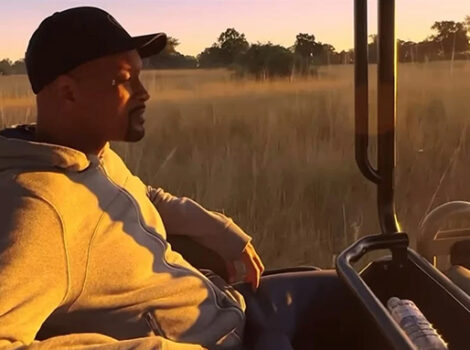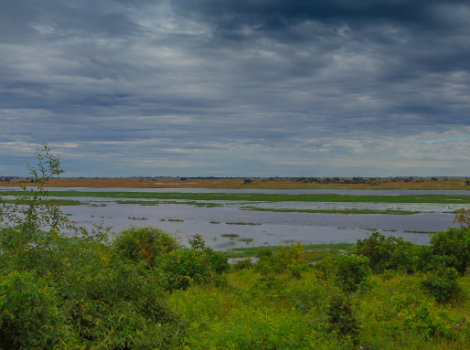
7 November 2023
Moody’s Investors Service, the globally recognised credit rating agency, has recently issued an updated sovereign credit rating for Botswana. The agency has affirmed Botswana’s long-term local and foreign currency issuer ratings at “A3” for the year, with a “stable outlook” being retained.
Moody’s rationale behind this credit rating underscores Botswana’s outstanding creditworthiness. The nation boasts remarkably low debt levels and a robust institutional framework, which is further fortified by a history of governance strength. These favourable factors are thoughtfully weighed against the country’s economic reliance on the mining sector and related activities. The rating agency also underscores Botswana’s limited vulnerability to political, liquidity, and banking-related event risks, further solidifying its creditworthiness.
The “stable outlook” attributed to Botswana by Moody’s reflects a careful assessment of potential risks and rewards. Moody’s anticipates continued growth in Botswana’s diamond industry, a cornerstone of its economy, despite a somewhat subdued global outlook for diamond prices.
However, the agency does express concerns about the nation’s fiscal vulnerability due to the depletion of fiscal buffers. Nevertheless, Moody’s takes comfort in Botswana’s ongoing commitment to robust governance and institutional resilience, which should enhance its ability to respond to unforeseen shocks, even with diminished fiscal buffers.
Moody’s outlines the conditions that could trigger an upward revision of Botswana’s credit rating. These conditions include enhancing the nation’s capacity to withstand economic shocks, achieved through accumulating higher fiscal buffers and reducing the budget’s sensitivity to fluctuations in Southern African Customs Union and mineral revenues. Furthermore, diversifying the economy, improving the business environment and successfully implementing the government’s development agenda without a substantial increase in the debt burden could justify a rating upgrade.
Conversely, Moody’s provides insights into potential factors that might lead to a credit rating downgrade for Botswana. Such a scenario could materialise if the country’s fiscal metrics deteriorate beyond current expectations, particularly if challenges arise in implementing fiscal consolidation following a surge in development spending. An escalated financial support to state-owned enterprises or a significantly gloomier economic growth outlook could also trigger a downgrade.
This rating affirmation reaffirms Botswana’s robust economic performance and prudent fiscal management. It underscores the pivotal role of maintaining strong institutions and policy frameworks that uphold macroeconomic stability. Additionally, the report underscores the necessity of advancing ongoing economic structural transformation and policy reforms to foster economic diversification, rebuild fiscal buffers, and enhance overall economic resilience.
Botswana’s economy contracted in the second quarter, raising concerns of a potential technical recession as the diamond industry, a cornerstone of the country’s economy, continues to decline. A technical recession is characterized by two consecutive quarters of negative Gross Domestic Product (GDP) growth and may indicate more significant economic challenges.
According to the latest report from Statistics Botswana, real GDP in the second quarter saw a 3.5% decrease, a sharp contrast to the 5.7% growth experienced in the first quarter. On an annual basis, the real GDP expanded by 3.4% in the second quarter, a decline from the 5.5% growth recorded in the first quarter.
The modest annual growth can be attributed to the increase in the real value added in the finance, insurance, and pension funding sector, which expanded by 7.6%, and the mining and quarrying sector, which saw a 5.9% increase. Most other sectors of the economy also recorded positive growth rates exceeding 1.5%. However, there were exceptions, notably the water and electricity sector, which contracted by 38.8%, and the diamond trading industry, which experienced a significant 22.4% decline.
In the second quarter of 2023, the mining and quarrying sector emerged as the largest contributor to GDP at 21.9%, followed by public administration and defense at 15.5%, wholesale and retail at 10.8%, and construction at 10.1%.
The economic challenges, particularly the decline in the diamond sector, have raised concerns about the possibility of Botswana entering a technical recession. While a technical recession may not necessarily indicate a broader economic downturn, it can serve as a warning sign of more profound economic issues and a potential precursor to a more prolonged recession. The performance of the Botswana economy in the coming quarters will be closely monitored to assess the severity and duration of these economic challenges.
Source: https://www.sundaystandard.info/moodys-maintains-botswanas-credit-rating/



